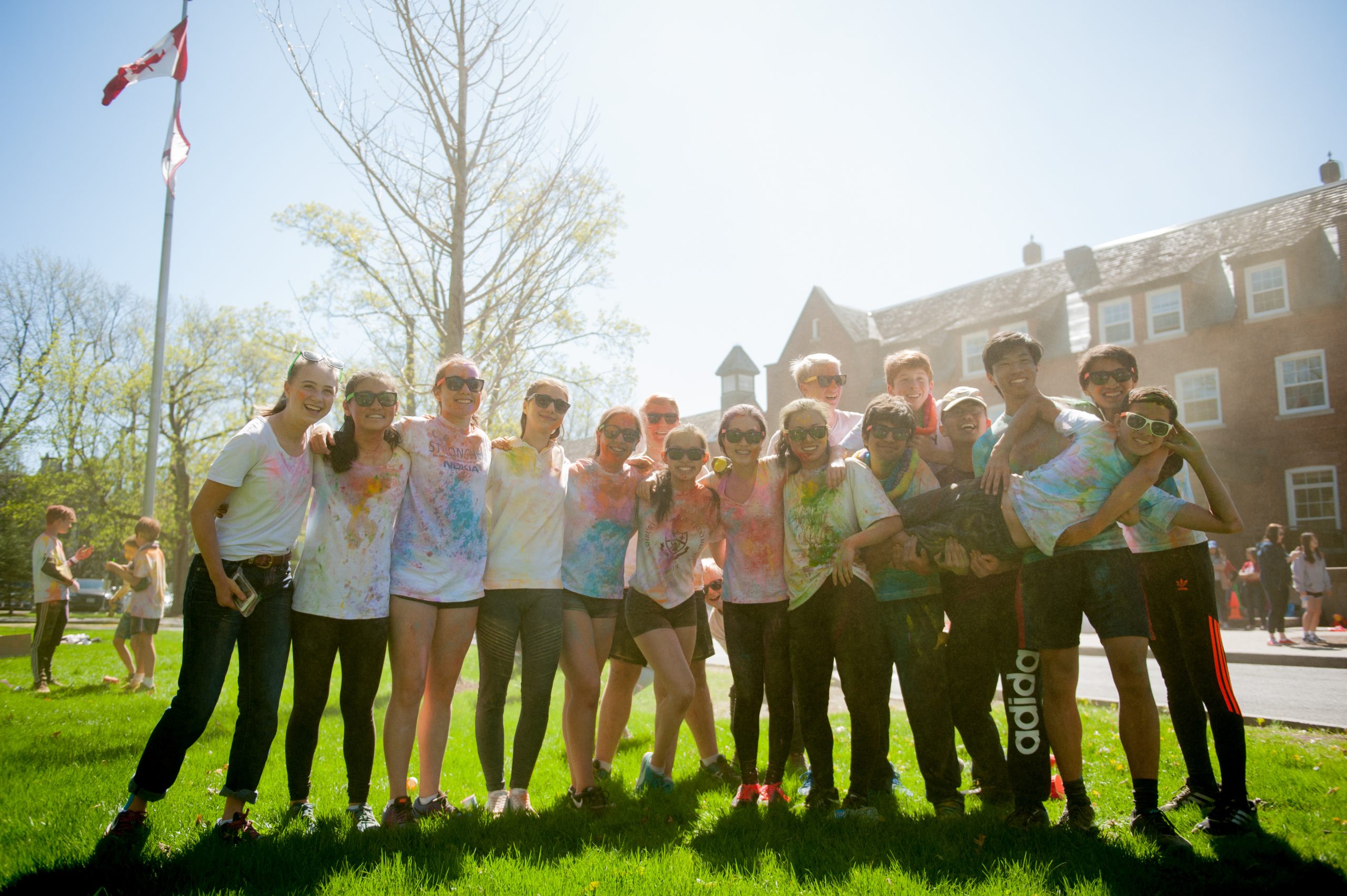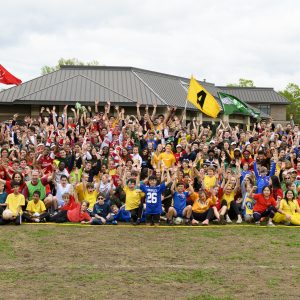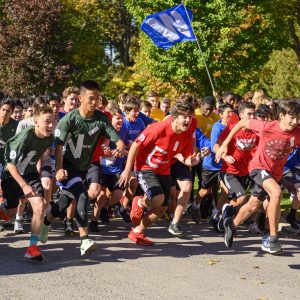School Life
“At Ashbury there are many events, clubs and committees to be a part of. Participating in clubs and still meeting academic requirements is a challenge, but it is possible because Ashbury teaches you how to balance your time effectively.”
– Jonta, Grade 12
Whole Student Development
The heart of Ashbury’s education program is our motto: Probitas, Virtus, Comitas – Honesty, Courage, Kindness. These three characteristics frame lifelong values for Ashbury students and push them to maintain high standards for their thoughts, words and actions.
There are many opportunities for students to demonstrate their character at school. Some are structured and built into our program, and others are unstructured, teachable moments. Unstructured moments occur when we are faced with adversity, make mistakes, or experience conflict with others. Reacting with honesty, courage, and kindness in those situations allows us to learn from our experiences and grow into responsible citizens.
At Ashbury, we treat each situation as a building block that helps us develop into the best version of ourselves. Ashbury also provides structured opportunities for students to learn about and reflect upon their character. The school offers many resources for students to examine issues and experiences in their lives.
Chapel
Our Chapel program is one example of the conscious and structured opportunities Ashbury provides for students to learn about and reflect upon their character.
While our roots lie with the Anglican church, our non-denominational Chapel program allows students to gather and address issues that impact our community and the world. For example, Chapel addresses topics such as diversity, equity and inclusion and provides an opportunity to learn about the many cultures, identities and faiths that are represented at Ashbury.
Each week the Chapel program provides opportunity for student voice to be heard. The Ashbury Chapel program fosters spiritual and ethical growth in a community founded upon the values of pluralism, integrity, inclusion, and mutual respect.
Our Chapel Coordinator, together with students, faculty, and occasional guests, leads chapel. All students are required to attend Chapel. Students are encouraged to explore their spirituality with the Chapel Coordinator at any time and arrangements can be made for boarders to join worship settings in the area.
Prayer Room/Reflection Space
As part of the Pluralism Project objectives, Ashbury has developed a prayer room/reflection space for all students to access.
Assembly
Every Monday the school gathers to learn about upcoming events and activities and to celebrate achievements. Student voice is the focus of these weekly gatherings
Ashbury’s House System
Each student at Ashbury belongs to one of four Houses: Dragons, Goblins, Hobbits and Wizards in the Junior School, and Woollcombe, New House, Alexander, and Connaught in the Senior School.
House points can be earned for a variety of activities and through a series of friendly competitions.
Form Advisor Program
Each Form class has two designated Form teachers. These teachers are the main contacts between the school and home for questions of a general nature. Form teachers encourage students to be independent learners, to advocate for themselves and to be resilient.
Moreover, these teachers:
• Facilitate social-emotional education through weekly discussions in the Junior School Circle Program;
• Help students to stay organized by reviewing daily work and upcoming assignments
• Observe, monitor and encourage student involvement in co-curricular activities and school life;
• Develop and review goals with students each term through the Junior School Learning Skills Report;
• Meet with students to start and end each day – this is an opportunity for students to ask for help if needed;
• Respond to parents’ question or concerns about their child’s overall adjustment, engagement and success.
The Form teacher may refer, suggest or consult with others depending on the circumstances. Parents with concerns regarding a specific course of study should contact the subject teacher directly. The relationship between Form teachers and students is unique to Ashbury and is built on trust. This relationship works best when there is a positive commitment by parents, students and teachers.
Junior School Circle Program
The Circle program is a social and emotional learning program designed to create a culture of respect and acceptance. Teachers lead their Form in discussions about weekly themes to generate the opportunity to learn and practice how to be good listeners.
Relationships are built between students as well as between students and teachers as they share insights and feelings and reflect on topics such as community, communication and wellness. Interpersonal skills are developed, and students gain awareness of the feelings and experiences of their peers. This reflection cultivates self-awareness and empowers students to consider the consequences of their words and actions.
Senior School Teacher Advisor Group Program (TAG)
Students entering the Senior School are assigned a Teacher Advisor and most often stay with that advisor throughout their time in the Senior School. Advisors act as an important link between home and school. As students and parents experience Ashbury Senior School for the first time, the advisor can be a helpful resource to both students and parents. Advisors can support, celebrate, and assist students and families during the ups and downs that invariably characterize time in school.
Each partner has responsibilities to get the best out of this home-school relationship. Parents should take the initiative to get to know their child’s advisor early on to develop a positive working relationship. Students also need to take the time to build the relationship with their advisor by assuming an active and positive role in any initiatives generated by the advisor or other students in advisory meetings, and by initiating activities and discussions about things that are important to them. Advisors monitor and support a student’s involvement in school and can provide guidance with goal setting.
Advisors meet with their advisees once per week. These meetings provide opportunities to discuss weekly themes/topics, current events, positive social behaviours, healthy choices, and constructive decision-making. Parents who have questions or concerns about their child’s overall adjustment, engagement or success at Ashbury can contact the teacher advisor. The advisor may refer to, suggest or consult with others depending on the circumstances. Parents with specific subject concerns should contact the classroom teacher directly.
The most important aspect of the advisory program is the individual relationship between the advisor and advisee. This works best when there is positive commitment by parents, students and advisor.
















